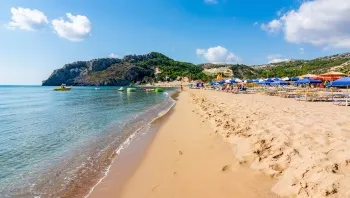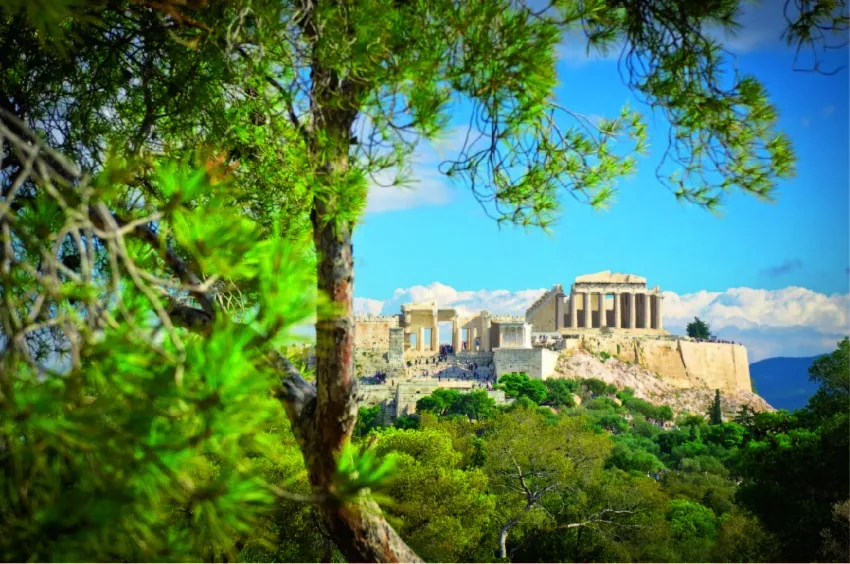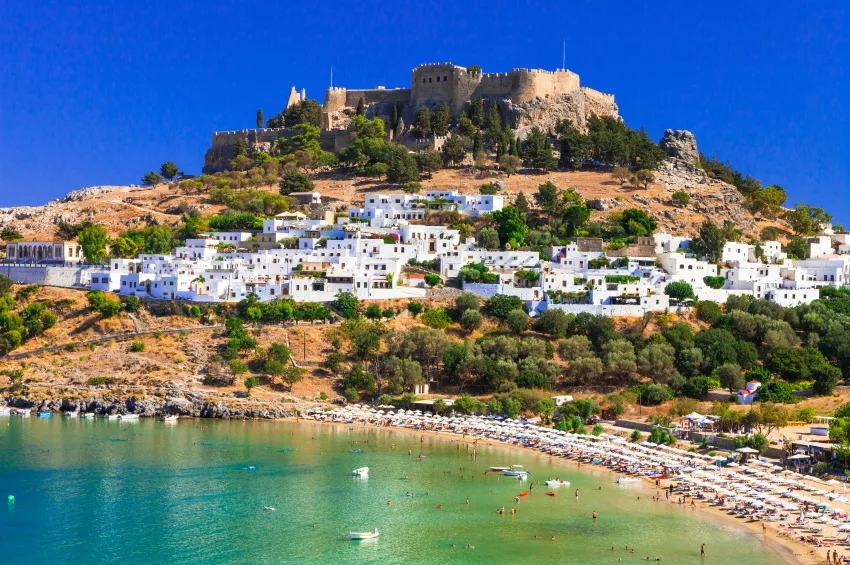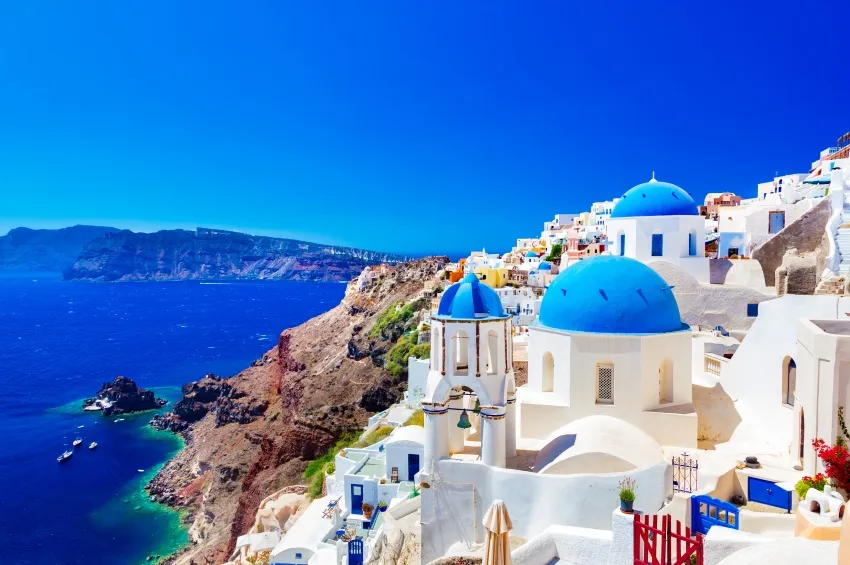- Home
Excursions to Greece
Excursions to Sicily, Greece and Cyprus
We’ll cross the island to visit the charming fishing village of Lindos. For many tourists, the natural landscape, astonishing views, and impressive archaeological site are second to none in the islands. As we walk the streets towards the Acropolis, you’ll see ruins from the variety of civilizations who have called this island home. You'll have a superb view of the whitewashed village against the yellow rock and blue sea below from the top of the hill.
PLEASE NOTE
- The order of the visits can change.
- Times are approximate.
This beautiful Eastern Orthodox monastery sits in the forest at the foot the Mount Hymettus, right outside of the city. The verdant slopes of Mount Hymettus are a haven from the hustle and bustle of Athens, especially in the hot summer. Monks first built the monastery in the 11th century over a shrine to the goddess Aphrodite. The frescoes on the ceiling of the church are a fascinating study of Eastern Orthodox art. We’ll follow the trail through the garden to the small church above, a grotto-like chapel sanctuary covered from top to bottom with icons and religious objects.
PLEASE NOTE
- The order of the visits can change.
- Times are approximate.

Transfer to Faliraki Beach. Sunlounger and umbrella rental included.
PLEASE NOTE
- The order of the visits can change.
- Times are approximate.

We’ll set off by coach with our guides for the Athens Acropolis, situated on a 150m-high rocky plateau and which in Ancient times was a vast sanctuary for the worship of the Goddess Athena and numerous other gods in Greek mythology. You will have the chance to discover the different temples on the site including the Parthenon, built in the 5th century BC and dedicated to Athena, whose gold and ivory statue stood in the sanctuary. It was destroyed during the siege of the city during the 12th century crusades, and the Parthenon was turned into a Catholic church when the Franks occupied Athens, then into a mosque by the Turks in the 17th century. You will also visit a number of other remarkable monuments still standing such as the Erechtheion, an elegant little temple dating back to the 5th century BC; the Temple of Athena Nike, known in Ancient Greece as the "temple of victory"; the Propylaea, the monumental entrance to the Acropolis; the ancient Theatre of Dionysos and the Odeon of Herodes Atticus...
You will then return to the coach to finish off with a panoramic tour of the modern city of Athens, also taking in the Agora, the center of public life for the ancient Athenians. This square open space served a variety of purposes: political, religious, economic, commercial and cultural.
PLEASE NOTE
- Good shoes are recommended.
- The order of the visits can change.
- Times are approximate.

The "island of roses" is one of the golden Dodecanese islands, which cultivate their originality: Hellenic in their soul, Byzantine in their memory, Oriental in their character and yet definitively Greek. Rhodes is an important cultural and economic center in the archipelago of 12 islands and dozens of islets. The last bastion of Europe before the Orient, the island played a major role in Antiquity, then in the Middle Ages. You will leave the port for Mount Smith from where you will have a splendid panoramic view of Rhodes and the surrounding countryside. After passing through the Amboise Gate, you will reach the highest point of the medieval town, the Palace of the Grand Master, an imposing fortress with lavish interior decorations and a courtyard filled with Roman statues. The museum contains superb mosaics, also dating from the Roman era. The tour continues along the Knights' Road, both steep and narrow, with its characteristic cobbles. This road is lined by prestigious "Inns" where the Knights of the Order were received according to their language and country of origin. Today, this street still gives off a certain aura of nobility and inaccessibility. You will also be able to admire the rich Gothic-style decorations, the arched windows, the flat roofs and the honey-colored facades.
PLEASE NOTE
- The order of visits can change.
- Times are approximate.

Santorini is the most famous of the Cyclades and also the most beautiful. Its earthquake crater is invaded by the sea, and the scenery is breathtakingly beautiful. At the very top of the island you can make out dazzlingly white villages. The immense, half-closed Caldera punctuated by eruptive cones is a reminder of the cataclysm that shook the island in the Minoan era, the eruption causing a tidal wave. You will have the chance to visit the islands’ most picturesque sites, to admire the most fascinating views, to briefly get a taste of local life and enjoy the natural and authentic flavors of this corner of the Mediterranean. We’ll reach the island on board rowboats. Departure by coach for Profitis Ilias, the highest point on this splendid island, whose colors and contrasts will accompany you throughout the morning. You will then take the direction of the village of Oia, the postcard village of Santorini with its beautiful white houses clinging to the side of the cliff and overlooking the Aegean Sea. The last stage on our tour will be the delightful village of Fira, with its blue cupolas that blend in with the sky. We’ll travel back down to the port by cable car and board our rowboats again back to the ship.
PLEASE NOTE
- The order of visits can change.
- Times are approximate.
